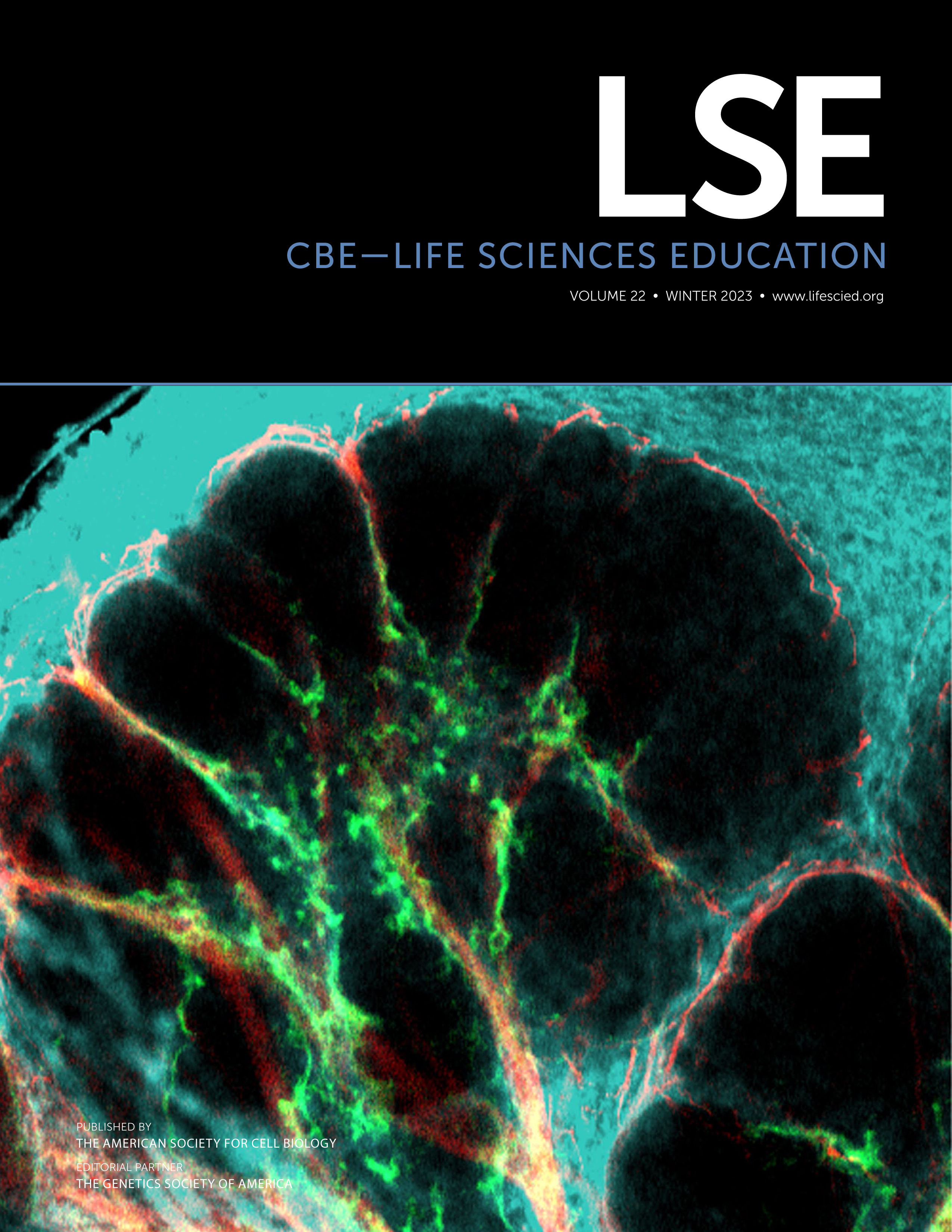Forming Groups in a Large-Enrollment Biology Class: Group Permanence Matters More than Group Size
Abstract
Active-learning pedagogies often require group work. We tested aspects of forming groups in a nonmajors Biology class. We asked whether large or small groups affected student learning outcomes and attitudes towards working in groups. We placed students in groups of three or six and students stayed in their groups for the term. We measured learning outcomes using a pre/postassessment as well as two-stage exams. Attitudes towards working in groups were measured using a previously published pre/post survey and an exit survey. We found that students in large groups did better on group exams and large groups had higher highest scores on the individual part of two-stage exams. Group size had no effect on students’ postassessment scores or attitudes towards working in groups. We next assigned students to permanent or nonpermanent groups. We used the same metrics as the group size experiment. Students in permanent groups had higher group exam scores and better attitudes towards working in groups. Group permanence had no effect on students’ postassessment scores. Students preferred working in permanent groups due to positive group interactions that developed over the quarter. Optimal group size and permanence are likely context-specific and dependent on the types of group work used in class.



